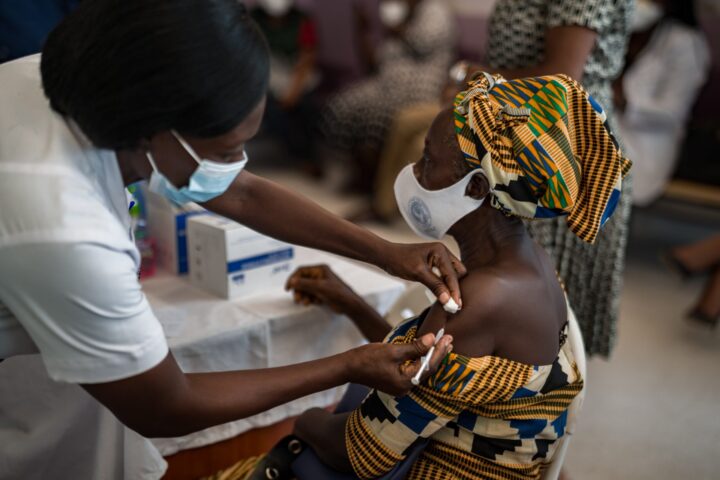BY AWAAL GATA
What began as a spate of clashes between sedentary farming communities and nomadic herders has led to a national dilemma in which the word “cattle” has become a symbol of ethnic divisions and killings across the country. Our absolute lack of imaginative thinking in tackling national problems has led to a polarizing dispute even among the policymakers who ought to lead the conversations on the challenges of the cattle business in an increasingly unsafe country. On May 11, the seventeen southern governors of the federation gathered in Asaba, Delta state, and took a unanimous decision to ban open grazing.
In Sokoto, their northern counterpart, Governor Aminu Waziri Tambuwal, had already found a way to revolutionize the cattle business. As a part of his agricultural reform, he embarked on cattle crossbreeding programme to check the dangers posed by grazing amidst this nationwide insecurity. Crossbreeding, in essence, results in an environmental adaption by the products and increased fertility, and this takes away the need to migrate to milder climates or greener regions for the survival of the cattle. This solution ought to have been the first approach when cattle rustling became a trend, and then the suspicion of pastoralists heading to the South or other parts of the North to rear their cattle.
The Sokoto intervention began when Governor Tambuwal acquired 117 cows, consisting of Jersey, Brangus, and cross-breed of Holtsien and Jersey breeds. These were distributed among clusters of farmers as a part of a continuous project to redefine cattle farming in the state. The result is, about 90 percent of the female have reproduced, and the thirteen participating cluster farmers who benefited from the pilot programme are already reaping the fruits of this wisdom, and yet away from subjection to rustling and attacks that have come to trail farmers. Before the programme, the farmers, who used to achieve production of only 1 to 3 litres of milk from an individual cow now produce up to 30 litres. The meat production, also, has risen from between 100kg and 250kg to about 500kg.
Advertisement
This means increased productivity, not only in the health and quality of the cattle but also in food production and security. The increased growth in the income of the farmers and the larger commercial life in Sokoto state is an inspiration, especially for policymakers who have been debating the solution to open grazing without really proffering a unifying one. The success of this pilot, which is already being built on, is a guarantee of higher quality of life for both participating farmers and pastoralists and those indirectly employed by the business. Proffering a solution to our long-running farmers-herders crisis while boosting job creation is akin to killing two birds with one stone.
Like every programme in Nigeria, sustainability and continuity have always been a setback. Indeed, the scarcity of lasting green pasture drives the southward migration among Fulani herders. Sokoto’s cattle farmers, however, have no fear in overcoming this challenge. Pasture production has been a part of the package for the cluster farmers involved in the cross-breeding programme. The state government has demarcated extensive hectares of land for pasture production, and also set aside over 5000 hectares for the production of animal feeds for the cluster farmers and other pastoralists.
In sustaining the programme, the government has also intensified intervention in the control and prevention of animal diseases, beginning with the approval of the vaccination of livestock across the 23 local government areas in the state. The vaccination has also focused on diseases such as contagious bovine pleuropneumonia, black quarter, brucellosis, peste des petits ruminants (PPR), anthrax and other diseases that have hindered poultry production in Sokoto state, such as Newcastle disease, Gumboro disease and La Sota. The aim is to boost the larger animal and poultry production in the state and prevent animal-to-human transmission as the government prioritizes animal business.
Advertisement
The medical structure for animal disease control is similarly being driven through the engagement of all veterinary surgeons who have graduated in the state since Governor Tambuwal’s administration took off. Currently, there are actively employed veterinary doctors in all the 23 local government areas and 86 districts of the state working tirelessly to sustain this quiet revolution in animal production. For instance, the state capital has a veterinary clinic offering 24-hour service along Aliyu Jedo Road, Minanata, the first of its type in Nigeria. Additionally, the government has sustained distribution of purchased drugs and equipment to all the clinics in the state, along with ambulatory vehicles and call-to-duty vehicles, including motorbikes for easy navigation in discharging veterinary services even in rural areas. X-ray and ultrasound machines, including mobile versions, have also been made available at veterinary clinics.
But cattle farming isn’t about the science of cross-breeding or the health of the cattle alone, the means of processing the cattle for meat production is another Gordian knot. The structure of abattoirs determines the sincerity of a government in processing animals for consumption. For Governor Tambuwal, the problem has been solved through the engagement of qualified personnel to manage the sanitation and hygiene of the state’s prime abattoir daily. The structure has been provided with brand new standby generators and boreholes for the constant supply of power and water and overseen by dutiful veterinary doctors who conduct regular meat inspections in the abattoir and certify them for public consumption.
With 19 grazing reserves, of which over 400 kilometres have been demarcated to prevent encroachment and the much-dreaded rustling, Sokoto is setting a pace in tackling a disaster that has stalled Nigeria’s internal security and has also become the recurring source of irreconciled conflict between the South and the North. The demarcated reserves have offered pastoralists protection from rustlers and prevented their clash with crop farmers.
As Nigeria debates the politically charged “Ruga Policy,” which has been fiercely opposed in various quarters due to its ambitious components and distrust, Governor Tambuwal has rolled out a viable alternative without undue hype and fanfare. But what’s even more inspiring is the step taken towards artificial insemination to hasten and cut down the cost of crossbreeding, which is set to take off this week. Hopefully, at this pace, Nigerian policymakers may have to visit Sokoto to study a solution to the problem that has now grounded Nigeria.
Advertisement
Awaal Gata is a media practitioner and public affairs analyst. He writes from Abuja.
Views expressed by contributors are strictly personal and not of TheCable.





